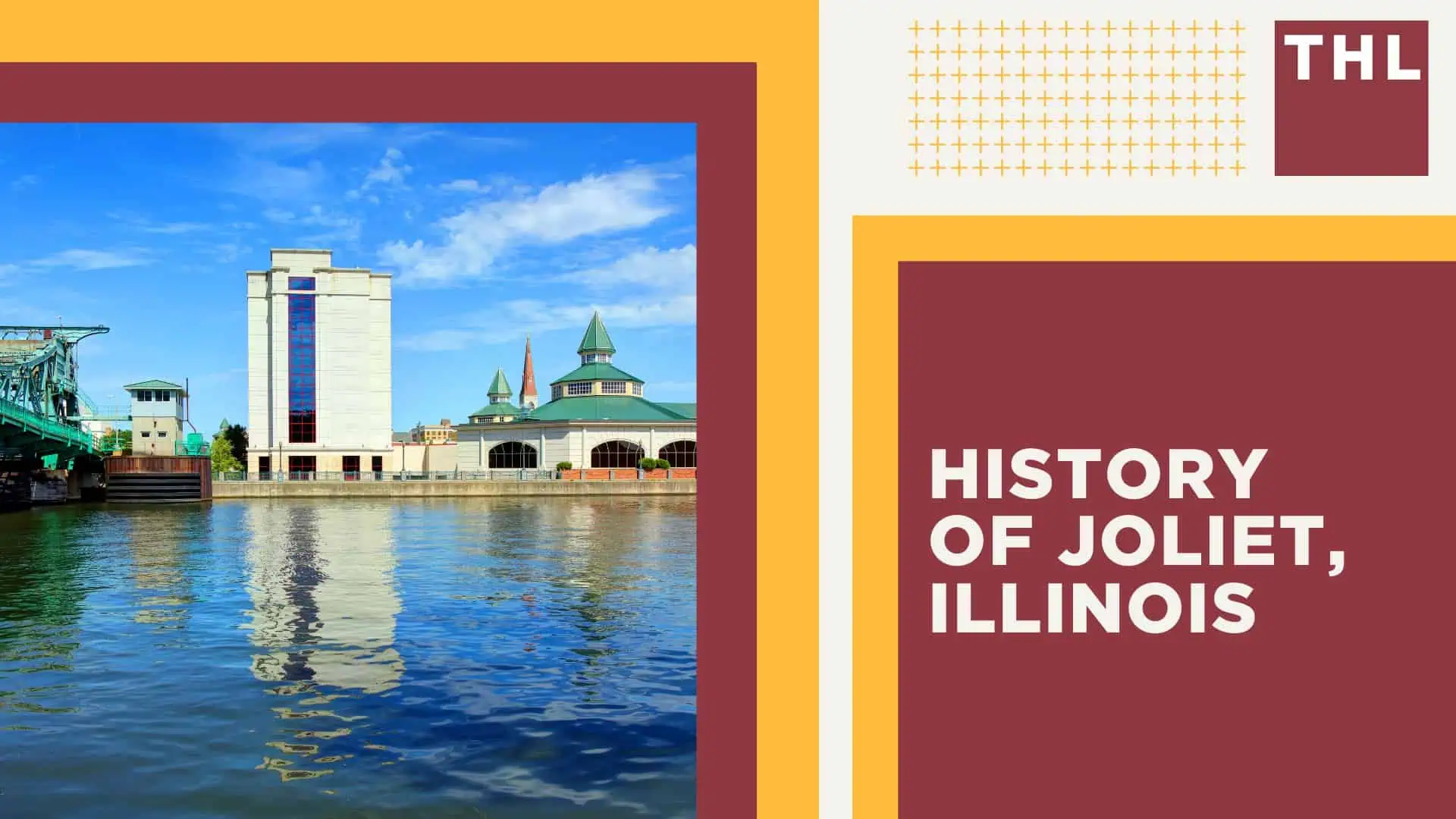In 1673, Louis Jolliet and Father Jacques Marquette camped along the Des Plaines River in present-day Joliet.
Development was relatively idle until 1833 when Charles Reed became the first town settler.
A year later, James B. Campbell laid out plans for “Juliet,” and in 1836 it became the county seat of Will County.
By the 1850s Joliet had a new name and became a major hub for business.
Through the remainder of the century, Joliet flourished because of its abundance of limestone quarries and early steel mill developments.
This brought in thousands of Irish and southeastern European immigrants.

Joliet’s mills and large labor force made it a hotbed of industry into the 20th century.
Established businesses opened up downtown while the city saw growth in manufacturing industries including bridge builders, stove companies, machine manufacturers, and many more.
Joliet also became home to the nation’s oldest public community college, Joliet Junior College.
Joliet was hit hard by declines in American manufacturing through the 70s and 80s and had unemployment rates up to 26 percent.
The city bounced back in the 90s and is now seeing rapid residential and commercial growth.















